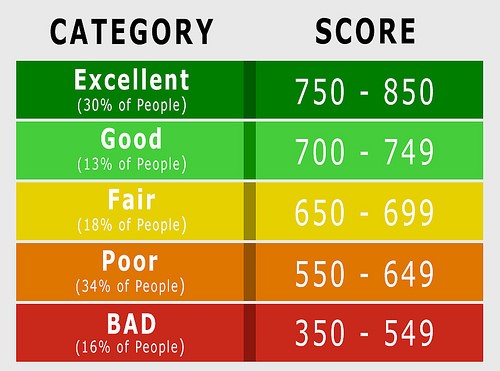[ad_1]
Image via Flickr by GotCredit
Are you looking at going to school to boost your chances of succeeding in the business world? If so, you might be interested in obtaining student loans.
However, if you can get money for tuition through a grant or a scholarship, then you should definitely do so. If you can save up enough money to pay for classes by working, that works too. If your parents can afford to send you to college, you’re among the truly fortunate.
But for many college students, the best option available is a student loan. You can obtain student loans either from a federal institution or a private lender. Loans and interest rates work basically the same no matter who lends you the money. However, there are some fundamental differences between federal and private student loans.
RELATED ARTICLE: 6 REASONS WHY AN ENTREPRENEUR NEEDS A COLLEGE DEGREE
Different Student Loans Have Different Interest Rates
The federal government offers student loans for public benefit, not so they can maximize their profits. This means they keep interest rates both fixed and low.
Private interest rates are almost universally higher. They can have either fixed or variable interest rates. Variable-rate loans offer a lower initial interest rate. However, the numbers go up or down depending on the market and the prime interest rate. This the interest rate that is set by the Federal Reserve. Variable-rate loans tend to be a better deal since they let banks keep a consistent profit. However, that’s only as compared to a private fixed-rate loan.
There are Various Payment Plans
The payment plan on federal student loans is about as forgiving as they get. Payments only begin once you graduate from college. Plus, you can tie payment amounts to your current income. Therefore, your payment amount won’t overwhelm you even if you don’t get your dream job straight out of the gate. You also don’t have to worry about prepayment fees. And if you run into financial trouble, you can probably get a deferment.
With private student loans you can get some, all, or none of these benefits. Each institution has its own policies, and some of them are more forgiving than others. You also might qualify for some benefits based on where you live, what your credit rating looks like, and whether you can get a cosigner for your loan. The key is to make sure you shop around for the best private student loans.
Your Financial Background Matters

Image via Flickr by Daniil Vin
Not everyone is eligible for federal student loans. Most of them only go to students with a financial need, as proven by filling out a Free Application for Federal Student Aid (FAFSA). If you and/or your parents are well off enough, the best loan terms won’t be available.
Private lenders may also use the FAFSA, but they’re also likely to use your credit rating to decide whether you’re eligible for the best interest rates and perks. And since most students have no real credit rating, you’ll almost always need a cosigner with a good credit rating to get decent loan terms.
Ultimately, there are as many differences between private student loans from different lenders as there are between federal and private student loans. No matter which kind of loan you pursue, however, make sure you know all there is to know about it. Know all your alternatives before you sign the dotted line.
[ad_2]
Source link
Leave a Reply